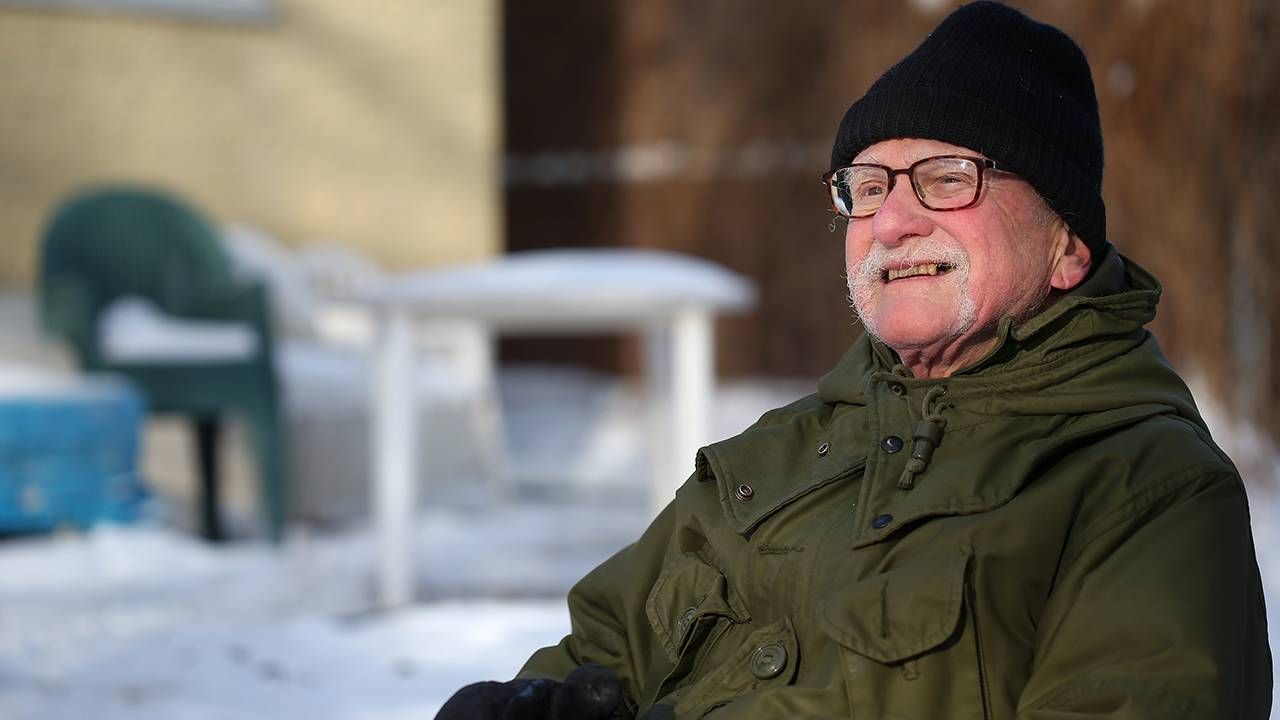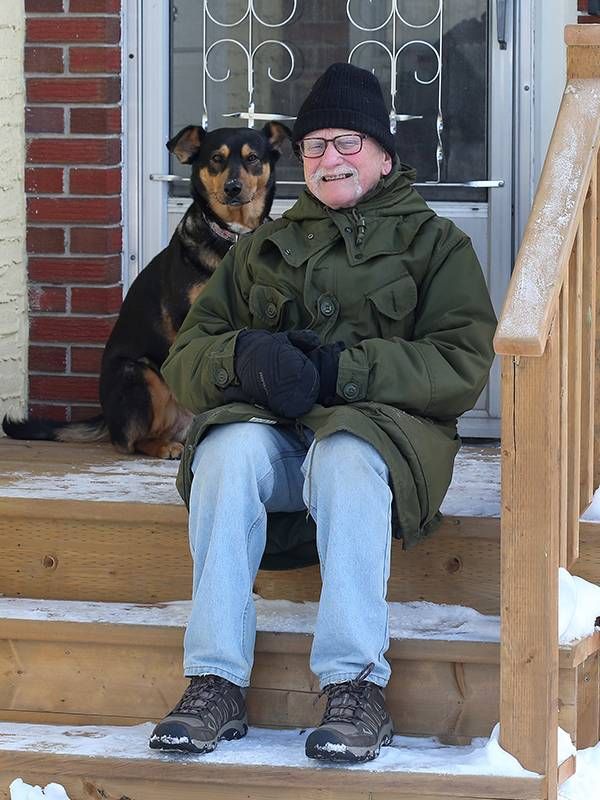How I'm Managing My Mild Cognitive Impairment
Exercising, eating healthy and awaiting my COVID-19 vaccine while living with "the shaky wakeys"
Editor’s note: The founder of the first sleep and dream research lab at the University of Manitoba and a retired psychology professor, David Koulack will be documenting his health journey through occasional posts on Next Avenue.
"Shaky wakey," is the feeling I wrote about a while ago before it was identified as being part and parcel of my Mild Cognitive Impairment. Then, it was just sort of happening from time to time. But now it's become my mantra.

The whole business came to the fore when I got a call from the hypertension clinic here in Winnipeg the other day.
The doctor was actually calling with the good news that, according to the results of the extensive blood tests I'd taken, I was in fine fettle. And, to top it all off, I was able to tell him that my blood pressure had been okay (125/70 or so) since I started taking the medication he had prescribed.
"But I've still got the shakes," I told him, "maybe worse than ever." It was the feeling of shakiness without actually shaking or at least not so that anyone could actually see what I was talking about.
It was the shakes that had sent me to the hypertension clinic in the first place, the ones that caused me to fall off the scale in our bedroom. When I fell off, I almost landed on my dog Mabel, who by then was fast asleep on her bed on the rug beside our bed.
"The funny thing," I said to the doctor, "is that the shakes tend to go away when I'm out walking with Mabel."
That incident not only scared the hell out of both Mabel and me, but it also caused Mabel to alter her evening routine. Before that accident, she'd get into bed after an evening snack and go to sleep while I was still doing my ablutions. But since that time, Mabel's started waiting until I'm safely (safely from her point of view) in bed and under the covers before she comes into the room and goes to bed herself.
"The funny thing," I said to the doctor, "is that the shakes tend to go away when I'm out walking with Mabel. Even though I usually start off with the shakes when she and I are at the top of the stairs leading from the house and just about to start our walk, they generally are gone by the time we reach the ground."
"What you're describing is not unusual," the doctor told me. "When you're walking around in the house, you're likely to be doing a lot more twisting and turning than when you are outside. Outside, you're more or less walking in a straight line. It's the going around corners and movements of that sort that generally cause some of the problem."
And when I started to pay attention, that indeed seemed to be the case, at least most of the time. Although admittedly, there still were the odd occasions that I'd have to ask Mabel to hold up for a moment in the midst of a walk so that I'd have a chance to steady myself.
It's important to mention that there were other things that started changing, too. For example, a few evenings ago, when I tried to get up from the sofa, I had trouble — I kept falling back down.
"What the hell's going on?" I said, and from the look on Mabel's face it was obvious that she was wondering the same thing. "Well, never mind," I told her, "I'm going for an MRI in a couple of days and maybe it'll have some answers."
As it turned out, I didn't have to wait for the MRI results to explain the difficulty I was having in getting up from the sofa. My son, Joshua, put his finger on it right away. It was something weird like aging. Aging!? Come on. Give me a break. I'm only 82.

But amazingly, aging may very well be playing a role in the getting up from the sofa problem. Would you believe it? My legs are apparently not as strong as they used to be, so now I need to literally give myself a helping hand and push myself up off the sofa cushions. And, when I think of it, it's just another reminder of the kinds of surprises that are likely still in store for me.
I ultimately did have an MRI. It was a strange experience, lying as still as possible inside a long tube while different pitches and intensities of sound were played into my ears in order to provide detailed images of my brain. Presumably the procedure would offer some sort of clue as to what was causing my Mild Cognitive Impairment.
The neurologist called me at home to tell me about the findings. He started off by mentioning that I had had an MRI in 2017, something that I didn't recall. Was the failed memory another symptom? Or was it merely a question of repression?
In any case, the neurologist said that I appeared to have excess liquid in the ventricles, liquid which could be drained off with a shunt. Maybe that would ease some of the difficulties that I've been describing, or maybe it wouldn't.
Positive Lifestyle Changes
But it is also possible, more likely in fact, that the MRI findings merely reflect a naturally occurring atrophy of the brain tissue that leaves room for the expansion of the ventricles, something that doesn't indicate a need for any sort of invasive procedure.
There are things that can be done, as mentioned in an earlier story. Things like utilizing a diet that includes cod liver oil and foods rich in omega 3 fatty acids such as avocados and fish.
Then, of course, there is Mabel's favorite health measure — prodigious amounts of walking. (As a matter of fact, she's here now, with her muzzle under my arm, lifting it off the keyboard with the clear message that it's time to go out.)
Ironically, there's something else the literature suggests I should be doing, and that is getting a good night's sleep. I say ironically because as the founder of the first sleep and dream research lab at the University of Manitoba, I've studied sleep, understand its importance and know the practices to follow that help to insure having a good night's sleep. They are simple proposals, things like avoiding caffeinated drinks, relaxing prior to bedtime and, as my cousin Ethel used to tell me, "Thinking nice thoughts."
There's something else my research suggests would be of substantial benefit. It's the simple process of interaction with other human beings.
And, if on occasion, you still can't fall asleep, get up and go into another room and do something relaxing like reading a pleasant book before returning to bed. But up to now, I have to admit, those techniques have not reliably worked for me, although I intend to continue trying them.
There's something else my research suggests would likely be of substantial benefit. It's the simple process of interaction with other human beings — walking and talking together, playing games with each other, having meals together. In short, it is the process of experiencing and exchanging thoughts and ideas about the vagaries of life that itself is likely to have a salutatory effect.
Ironically, those things are difficult to do in the COVID-19 climate that both surrounds and separates us at the present moment.
Hope in the Offing
But maybe there's hope in the offing. Mabel and I were in the front yard when a neighbor passed by. She'd been to her father's "birthday party." Birthday party is in quotes because she and other members of the family had to stand outside of her parents' house and communicate through an open window so they could all be physically distanced.

In any case, during the course of our conversation, I learned that her father, having turned the ripe old age of 89, was now eligible to receive the vaccine. In Canada, the age of eligibility, she explained, had started at 95 and been reduced by a year each time they completed the vaccination of a particular age group.
"The intention" she added, "is to have everyone in the province over the age of eighty vaccinated by the middle of May."
But the rollout has been happening faster than anyone anticipated. When I called the vaccine center, they were able to set me up with an appointment.
"Hey," I said to Mabel with maybe the hint of a grin, "I'll be getting my vaccination on the twenty-sixth of March."
Mabel gave me a quizzical look, one I knew all too well. "Okay," I said to her, "I know. That won't rid me of my Mild Cognitive Impairment or the shaky wakeys. But it'll allow me to get back to the to the rest of life — not just the great walks I have with you, but those wonderful interactions with other people, people like members of our family that you love to see too, especially the ones who slip you treats under the table. And don't think I haven't noticed."

